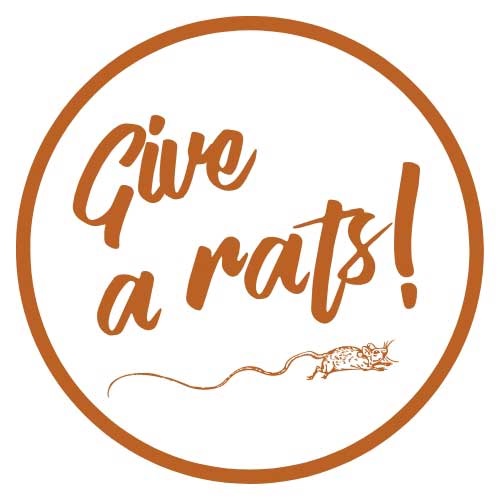Managing rodents


There's no denying that rodents pose a challenge to many households and businesses across the Tweed.
While eradicating rodents is necessary for maintaining a healthy living environment, it is essential that we approach rat control responsibly, considering the potential impact on non-target wildlife species.
Council's Give a rats! campaign is about educating our community about which rodent control measures are better than others in terms of their effect on our natural environment. By giving a rats about which option we choose, we are working together to reduce our impact.
Below we will explore some rat control methods that strike a balance between effectiveness and local wildlife protection.
Rodenticides (pesticides)
When using rodenticides to manage rodents, Council recommends you use a first-generation product over newer second-generation products, for many reasons that benefit the safety of our native wildlife and pets.
The benefits of first-generation rodenticides
Proven effectiveness: first-generation rodenticides have a well-established track record for managing rodent problems and have been successfully used for decades. They offer reliable control of infestations with little risks to non-target animals such as native wildlife or pets.
Less harm to native wildlife: Native species are less likely to die from secondary poisoning related to first-generation rodenticides than they are to second-generation products.
Better for the environment: first-generation rodenticides have shorter half-life than second-generation products meaning they don’t take as long to break down in the natural environment. This trait reduces the risk of residual poisoning of both native animals and local eco-systems, making them a more environmentally friendly choice.
How do I know which type of pesticide I’m buying?
It’s all in the ingredients. The active ingredients or chemicals used in first generation rodenticides are coumatetralyl, warfarin and diphacinone while second-generation products use the active ingredients brodifacoum, bromadiolone, difethialone, difenacoum and flocoumafen.
These ingredients will be listed on the product.
Natural solutions to rodent control
 When it comes to rodents there are several effective nonchemical options consider. These methods focus on preventing rodent infestations and addressing the underlying factors that attract them.
When it comes to rodents there are several effective nonchemical options consider. These methods focus on preventing rodent infestations and addressing the underlying factors that attract them.
Here are some non-chemical options for rodent control:
Exclusion: seal off entry points to prevent rodents from entering your property. Inspect buildings for gaps, cracks, or holes and seal them with appropriate materials such as steel wool, caulk, or wire mesh. Pay attention to areas around pipes, vents, doors, and windows.
Sanitation: maintain cleanliness in and around your property. Properly store food in rodent-proof containers, promptly clean up spills and crumbs, and secure trash in tightly sealed bins. Remove clutter and debris that can provide hiding places for rodents.
Habitat modification: make your property less attractive to rodents by changing their habitat. Trim tree branches away from buildings, remove dense vegetation near structures, and keep lawns well-maintained. Limit potential rodent shelters by organising storage areas and clearing away unused items.
Waste management: dispose of garbage properly and use sturdy, tightly sealed containers. Regularly clean outdoor garbage areas and keep them free from food debris. If composting, use enclosed bins and avoid composting meat or dairy products that may attract rodents.
Trapping: use humane traps to capture and remove rodents from your property. Live traps allow you to release captured rodents away from your premises. Check traps regularly and take appropriate precautions to prevent accidental trapping of non-target animals.
Natural predators: encourage natural predators of rodents, such as owls, hawks, to inhabit your area. Create habitat features like birdhouses or perches that attract these predators, contributing to a natural balance in rodent control.
Professional pest control: If rodent infestations persist despite your efforts, consider seeking professional pest control services. Pest control experts can provide targeted strategies and employ non-toxic methods to address rodent issues effectively.